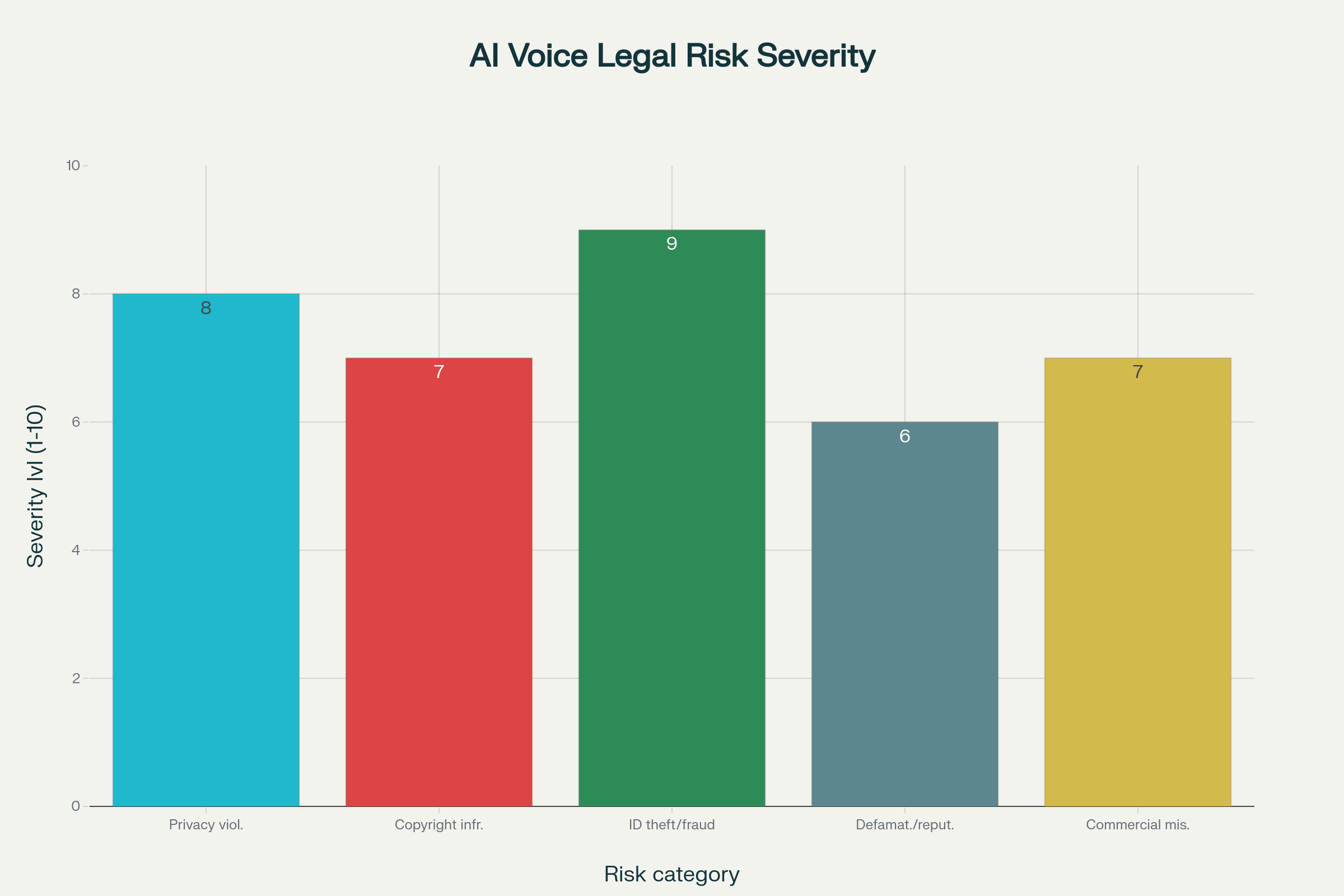Artificial intelligence is revolutionizing the dubbing industry, creating new opportunities for fast and cost-effective content translation. However, this technological progress brings serious legal and ethical challenges that require immediate attention. Using voice cloning technologies without proper understanding of legal risks may lead to lawsuits, substantial fines, and reputational damage. 🚨
Legal Framework for Voice Protection in Russia
New Voice Protection Legislation
In 2024, Russian lawmakers took an important step to protect citizens' rights to their voice. Bill No. 718834-8 proposes adding Article 152.3 "Protection of Citizen's Voice" to the Civil Code.

Key provisions of the bill:
- Publication and use of voice requires owner's consent
- Protection extends to recordings recreated using speech synthesis technologies
- After death, voice may only be used with relatives' consent
- Violators face administrative and criminal liability
Current Protection Mechanisms
Until specific legislation is adopted, voice is partially protected through contractual agreements and technological solutions. Learn more about AI dubbing technologies →
It's important to understand the legal framework before using the technologies:
- Federal Law "On Personal Data" - voice is considered biometric data
- Copyright - in cases of creative performance
- General personal data protection and privacy provisions
International Legal Framework
US Case Law
American legal system has already faced significant voice cloning cases. In Lehrman & Sage v. Lovo, Inc. (2025), a New York court heard the first case about unauthorized use of actors' voices for AI system training.
Case facts:
- Professional voice actors recorded voices allegedly for "research purposes"
- Lovo used these recordings to create commercial AI voices
- Court partially granted the claim, recognizing personality rights and contractual violations
Major AI Voice Fraud Cases
UK Energy Company Case (2019) was the first recorded major fraud using cloned voice:
- Damages totaled $243,000
- Scammers perfectly replicated CEO's voice and German accent
- Money was quickly transferred through Hungary to Mexico
Hong Kong Case (2023) showed even greater threat scale:
- Damages reached $35 million
- Deepfake video calls imitating multiple executives were used
Key Legal Risks of AI Dubbing
1. Violation of Image and Voice Rights
Most jurisdictions consider voice as part of personality alongside image. Unauthorized use may lead to:
- Moral damage compensation
- Fines up to $50,000 (in some US states)
- Court injunctions against further use
2. Copyright Infringement
While voice itself isn't copyright-protected, violations may occur when copying:
- Performances by voice actors
- Unique delivery style
- Sound recordings containing voice
3. Fraud and Identity Theft
AI dubbing may be used for:
- Financial fraud (imitating executives' voices)
- Political disinformation
- Extortion and blackmail
4. Contractual Violations
Many voice actor contracts include restrictions on:
- Commercial voice use
- Rights transfer to third parties
- Use in contexts that damage reputation
Ethical Principles of AI Dubbing
Consent Principle
Informed consent should include:
- Specific description of intended use
- Timeframe for permission
- Right to withdraw consent
- Compensation for voice use
Transparency Principle
Users should always know when hearing AI-generated content:
- Clear notifications about synthetic origin
- Visible labels on AI content
- Disclosure of technologies used
Accountability Principle
Companies must be responsible for:
- Protecting voice sample data
- Preventing malicious use
- Regular audits of AI systems
Checklist for Safe AI Dubbing Usage
Obtaining Consent
- Obtain written consent from voice owner
- Specify usage purposes
- Define consent duration
- Establish withdrawal procedure
- Agree on compensation terms
Technical Protection
- Use encryption for voice data storage
- Restrict access to original recordings
- Implement digital watermarks in AI content
- Maintain usage logs for voice clones
Choosing Technology Partners
When selecting AI dubbing providers, consider:
- Privacy policy and data protection
- Compliance with international standards
- Transparency of algorithms and training
- Company reputation and client reviews
Future of AI Dubbing Regulation
Global trends point toward stricter regulation of AI technologies. The EU already enforces AI Act with fines up to €35 million for transparency violations. Similar laws are being developed in the US, China, and other countries.
Conclusion
AI dubbing technologies offer tremendous opportunities for creating high-quality multilingual content. However, success in this field directly depends on compliance with ethical principles and legal norms. Investing in proper consent procedures, data protection, and transparency today will prevent serious legal problems tomorrow.
Want to learn how to use AI dubbing technologies professionally and legally for your content? Explore our solutions and get consultation on ethical AI translation technologies.
